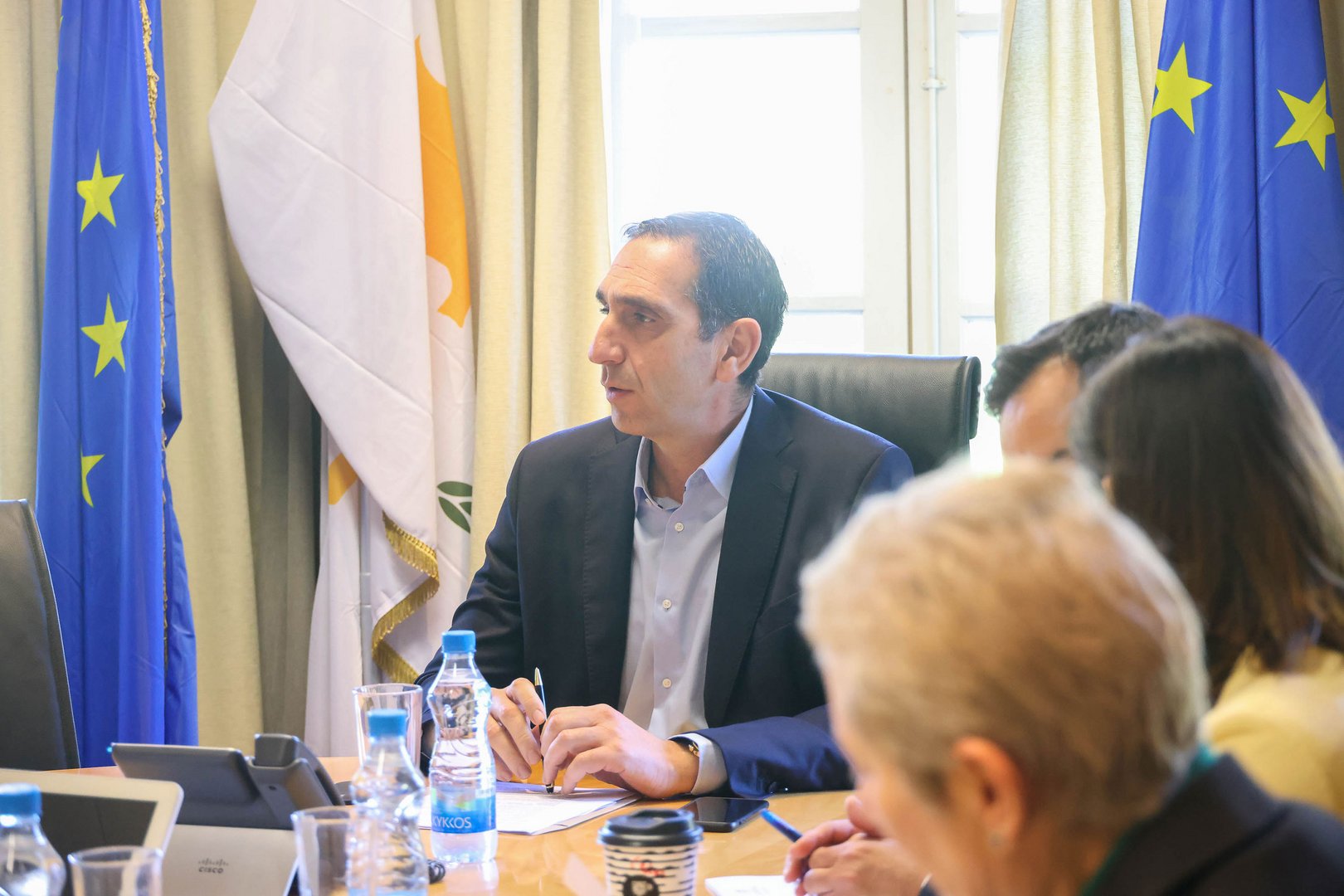The creation of a deputy migration ministry, the implementation of the Eastern Mediterranean Action Plan, and pressing Turkey are amongst the state’s key priorities to alleviate Cyprus’ migration challenges.
Interior Minister Constantinos Ioannou explained the problems Cyprus is facing to diplomatic missions from EU member states during a briefing at the presidential palace.
To highlight the scale of change that has taken place, Ioannou detailed that asylum applications have increased 490 per cent since 2017, with applicants or those who have received protection now accounting for six per cent of the population.
Highlighting the importance of turning the East Med plan into action, Ioannou warned that unless something happens in the upcoming months then Cyprus will be the next country to have serious problems.
“The Eastern Mediterranean Action Plan, which was decided last February, aims to restrict migration flows to Cyprus.
“We conveyed our recommendations to Brussels three weeks ago during my visit… the goal is to complete the action plan by June and proceed with its implementation,” he said.
The ministry’s presentation detailed that one of the government’s priorities is the creation of a deputy migration ministry.
It was explained that “institutionally it will collect under one umbrella the various immigration policies and competent departments for a more effective migration management system”.
Elsewhere, Ioannou’s presentation also emphasised Turkey’s role in Cyprus’ surge in irregular migration.
He highlighted that 95 of irregular migrants enter from the north via the Green Line.
Therefore, Turkey must cooperate if Cyprus is to reduce the number of irregular arrivals.
“Specific routes and trends have been identified – [they] use Istanbul airport for transit to travel to the occupied area and then cross the Green Line. In 2023, approximately 72 per cent of irregular migrants who crossed the green line utilised the so-called student visa,” it was explained.
It is understood that tens of thousands of international students are drawn to the 23 universities in the north but often under false promises or misrepresentation.
Indeed, France24 published an investigation this week which looked into the conditions many students face when they arrive in the north. It reported that there are officially 50,000 foreign students and that the education sector accounts for a greater proportion of GDP than tourism.
The ministry’s proposals to achieve the reduction include greater outreach towards Turkey through aligning Ankara’s visa policy with the EU’s, full implementation of the EU-Turkey statement of March 2016, implementing all provisions within the EU-Turkey readmission agreement.
Elsewhere, the government is also seeking greater consultation with airlines and for passengers transiting to the north to be screened.
But the ministry will also seek the “inclusion of a sanctions plan – failure to achieve expected decrease rates could lead to implementation of specific measures (e.g. ban of air-carriers to fly over EU territory, deny specific airlines the access to EU airports)”.
The government also wants to boost an information campaign targeting would-be migrants so that they are fully aware of the situation in Cyprus, as the state believes many are being taken advantage of and misled.
For example, many of those arriving in Cyprus are under the impression that the island is part of Schengen. The interior ministry said to achieve maximum output then the EU must also get involved in the information campaign.







Click here to change your cookie preferences